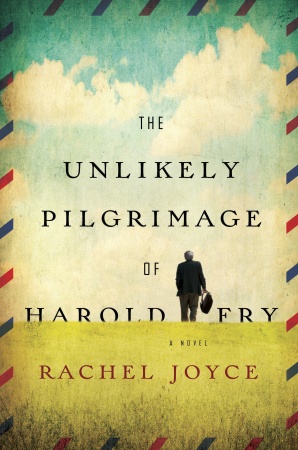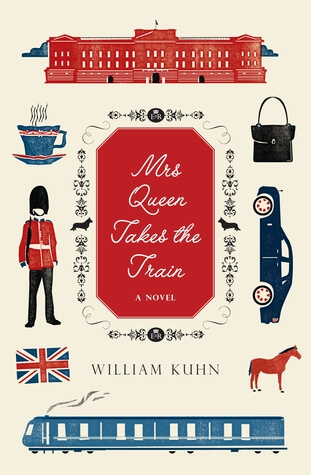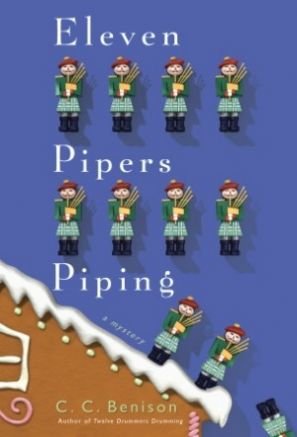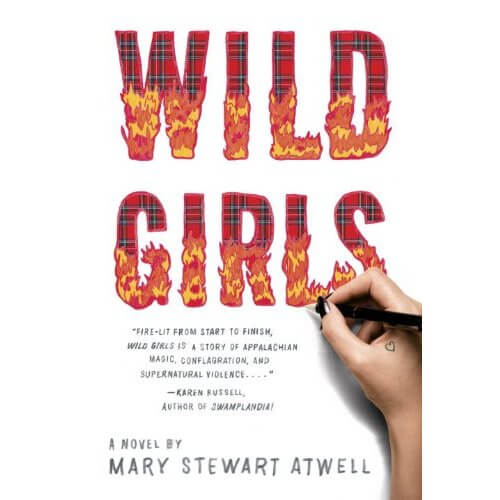From humble beginnings emerges a remarkable journey (or two) in Rachel Joyce’s Man Booker longlisted debut novel. The Unlikely Pilgrimage of Harold Fry opens with an ordinary couple, living a nondescript life in their quiet English home. Harold and Maureen are in their 60s and have been married for 47 years. They keep themselves to themselves, making uncomfortable small talk with the next door neighbour and otherwise going about life in an unremarkable way.
“He understood that in walking to atone for the mistakes he had made, it was also his journey to accept the strangeness of others. As a passerby, he was in a place where everything, not only the land, was open. People would feel free to talk, and he was free to listen. To carry a little of them as he went. He had neglected so many things that he owed this small piece of generosity to Queenie and the past.”
– The Unlikely Pilgrimage of Harold Fry, by Rachel Joyce
From humble beginnings emerges a remarkable journey (or two) in Rachel Joyce’s Man Booker longlisted debut novel.The Unlikely Pilgrimage of Harold Fry opens with an ordinary couple, living a nondescript life in their quiet English home. Harold and Maureen are in their 60s and have been married for 47 years. They keep themselves to themselves, making uncomfortable small talk with the next door neighbour and otherwise going about life in an unremarkable way.
Then one day, Harold receives a letter from a former co-worker named Queenie Hennessy who is writing to say goodbye because she has cancer and is dying. Harold is knocked off-kilter: he hasn’t spoken to Queenie in 20 years. When he goes to mail his response, he feels it’s not enough. After a random encounter with a girl who works in a garage, Harold comes to a decision, or a realization, that is somewhat startling for him: if he keeps walking, and believes that Queenie will be waiting for him at the end of that walk, then Queenie will keep living. He calls her hospice and asks them to pass along the message that he will be walking to her, from Kingsbridge in the south to Berwick-upon-Tweed in the north, over 500 miles. She must keep living as long as he keeps walking, he insists, and off he goes.
The premise is simple, and a bit illogical, and the protagonist is fully aware that his journey doesn’t make rational sense. His wife can’t understand what he’s doing at first, and as the story unfolds we see that Harold and Maureen don’t understand a lot about each other anymore. As Harold walks, he fills his time with remembrances of memories he has cherished, avoided, and repressed. Maureen, finding herself just as alone at home, all but abandoned and without any real support, remembers too. Harold has no map, no compass, no proper shoes, no food or water. He’s forgotten his mobile at home. And yet, he believes. It’s not a religious belief, and indeed Harold isn’t a religious fellow. His is a journey of a different kind of faith, reflected in the way he phrases his missions “I am walking so Queenie must live.” That quite little “must” encapsulates the whole pilgrimage.
The prose is straightforward in the best possible way: Joyce is a storyteller and doesn’t get bogged down with too-clever or heavy-handed writing. I had a chance to meet her (for a great recap of the event, hosted by Chatelaine Books and Random House, take a look at Just a Lil’ Lost’s blog), and she spoke about how carefully she planned out Harold’s walk, knowing exactly where Harold was every day of his journey. This comes across in the splendid details about where Harold stops and what he sees. it sets the tone for the books deep authenticity of her characters, plot, and underscoring emotions. She also teases out the mystery of what happened twenty years ago. I was always curious to discover what happened, and genuinely surprised by the final reveal.
Joyce does an excellent job of creating lonely, fully realized characters. As Harold walks, we learn more about him, almost as he is learning more about himself–and about others. At first, Harold doesn’t talk much to anyone, and hasn’t done throughout his life. He had a terrible childhood, which has caused him to fold in on himself, blocking out life and love. He and Maureen have avoided the neighbours, the office Christmas parties, and over the last twenty years each other. And yet Harold finds himself being helped in a moment of need, or sharing a table with someone who starts to talk to him. The chapter headings are charming: “Harold and the Hotel Guests”; Maureen and the Publicist.” Suggestive of children’s stories, there is a childlike, innocent quality to the narrative. In one of my favourite early encounters (“Harold and the Silver-Haired Gentleman”), a dapper businessman whom Harold feels a bit intimidated by shares a teacake with him, listens to Harold’s story about walking to Queenie, and opens up about a deeply personal problem. And Harold realizes how deceiving appearances can be. This gentleman carries just as much pain, however different it might be from his own, as he and Maureen do.
Maureen undergoes as much of a transformation as Harold does. She starts off not quite as a villain but certainly as a formidable woman who does not share any sort of emotional connection with Harold. As she goes about her day-to-day life she comes to understand how much she misses him, not just since he left but for the past twenty years. At first, there’s no one to mutter to about how she’s the one doing all the bedmaking and laundry; then she thinks about how they stopped laughing together, how she blames him for the problems with David, how she stopped gardening. All the little things that make a marriage and a life. The small changes in her demeanour and attitude add up, and her stationary journey is as important as Harold’s one-foot-in-front-of-the other journey.
The story is at its best when the focus is on these small realizations and encounters, when it’s just Harold or Maureen and their remembrances, or Harold’s encounters with strangers along his path and Maureen’s new friendship with the next-door neighbour. Harold is somewhat derailed in the latter third of the book as his story spreads and a variety of people decide to join him. As Harold is derailed, the narrative is somewhat put off course too, threatening to become a bit preachy and a bit too much of a parable about the perils of groupthink. Still, it’s interesting how well Harold gets along with the individuals he meets along the way and how difficult things become when a number of people form a group with accompanying goals and hierarchies.
The Unlikely Pilgrimage of Harold Fry is about the little things, About Harold accepting the kindness of strangers, and learning what sheep sound like in the night, and not carrying quite so much baggage (physical and otherwise) in order to reach the end of his pilgrimage (a word that he never uses himself). There’s an almost Zenlike quality to his approach. He’s a lovely, shy, broken, healing man. It’s about rediscovering the love that was always there, and about friendship old and new. This book is a bit sentimental, and that’s not a bad thing. Though woven with pain and sadness from the past, it’s a hopeful narrative, filled with a gentle positivity about life in the face of difficulties great and small. There were a few moments throughout where I found myself genuinely teary, and I don’t tend to cry when I read. This story offers a deep, authentic emotional resonance.
Rachel Joyce referred to her surprise at seeing her “little boat” of a book in bestseller lists with “big cruise ships” like Jeffrey Archer. Harold Fry deserves the recognition it’s receiving. It’s a beautiful read, and one that I will certainly reread as the years go by.
Four and a half out of five blue pencils
Book received from Random House in exchange for a fair, unbiased review.
The Unlikely Pilgrimage of Harold Fry, by Rachel Joyce, published in Canada by Bond Street Books, © 2012
Available at the Random House website, Amazon, Indigo, and fine independent bookstores everywhere.
You might also like:





Wow, I love that Joyce actually planned out Harold’s walk so that what he sees is authentic. Usually I dislike it when authors try too hard to make it obvious that they know the location really well, but this sounds subtle and appropriate.
Yeah, we’ve talked before about irritation at “The character went to THIS exact intersection and passed THIS street and THIS church on the way to THIS grocery store” when it takes away from the narrative. In this case, it’s totally organic. She knows exactly how far he’s walked, subtly mentions things like restaurants or fountains or baths or farms that are in that bit of England, but doesn’t bash you over the head with it. It works really well.
I’m glad you said it was good. I know it’s her first novel but she’s been a playwright previously, so I expect her to be a good storyteller. I am on the waiting list at the library for this, since it was put on the Booker shortlist
She’s definitely a good storyteller, and I’m sure her playwriting background informs that. Harold Fry was originally a radio play, in fact. I hope you enjoy it!!
I’ve been sitting on the fence about reading this book but your review has convinced me to add it to my TBR. Thanks!
Oh good! Let me know what you think when you’re done. And if you have a moment, do take a look at the link to Just a lil’ Lost’s blog for video of the author reading. She’s quite lovely!
Lovely review. I’m intrigued. Brings to mind Julian Barnes Sense of An Ending …middle-aged reckoning with our misperceptions, etc. etc. I shall have to add it to my “Not Can Lit reading pile!” Love to chat whenever our reading lists intersect — well, anytime really, but in particular if our reading lists intersect — I am currently struggling to articulate my views of Sheila Heti’s How Should A Person Be, with Lynn Crosbie’s Life Is About Losing Everything on deck. Then Peter Behren’s The O’Briens…and perhaps his Law of Dreams…
Love your blog name!
Thanks, Kerry! I’m enjoying poking around your blog right now. Beautiful analyses of Irma Voth (I adore Miriam Toews).
I’ve been meaning to read Lynn Crosbie for a while now. On deck for me is Louise Penny (I keep hearing about Inspector Gamache), Vincent Lam, and Angie Abdou.
Wonderful! Glad to have made your acquaintance. If you get around to Lynn Crosbie’s book I’d love to hear your reaction.
This sounds like an interesting book, although from your description the pace of his journey (ha) might be a little plodding for me.
Ooh, two bad puns in one sentence!
Not enough lasers or sword fights for my standard tastes… or laser-sword fights, which are equally acceptable. But a book with honest-to-goodness tear jerker capabilities is rare enough that I may give it a read.
It’s not a fast-paced book by any means. And there’s only that one scene where Harold has to take down the robot dinosaurs from the future.
I’ll lend it to you if you’d like to read it, though!